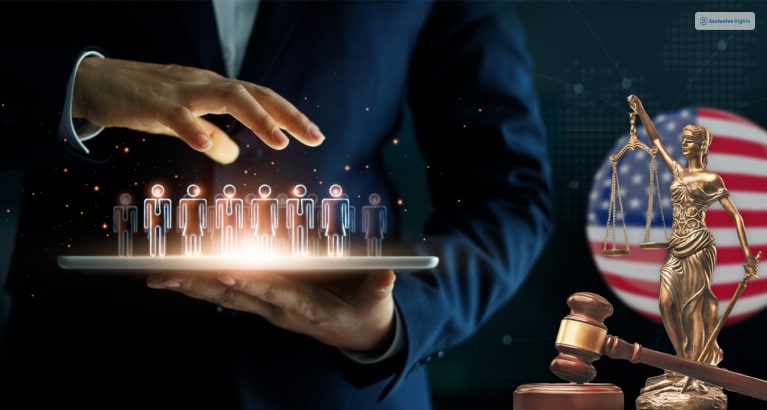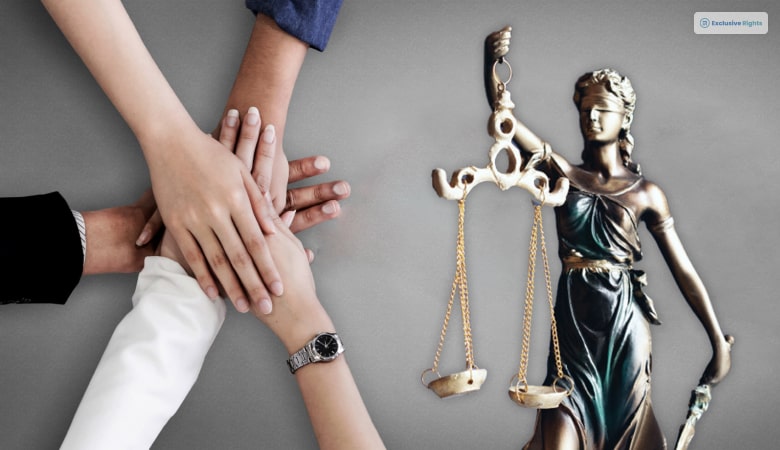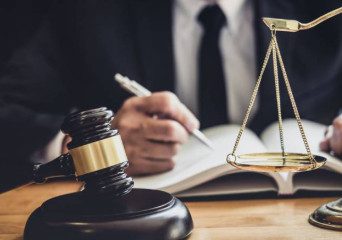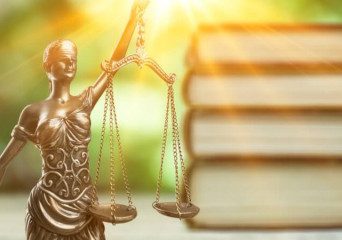
Table Of Contents
- So What Is The Right To Life, Liberty, And Personal Security?
- So, What Does The United States Say About The Right To Life?
- What Does The Liberty Of A Person Mean?
- What Does The Security Of A Person Mean? - Personal Security
- Where Did The Right To Life, Liberty, And Personal Security Originate?
- Roe v. Wade (1973)
- Griswold v. Connecticut (1965)
- Lawrence v. Texas (2003)
- Obergefell v. Hodges (2015)
- Atkins v. Virginia (2002)
- It’s A Legal Wrap.
What Does The Right To Life, Liberty, And Personal Security Mean
Life goes on. Something that all of us find ourselves saying once in a while. But have we ever wondered, who gives us the right to life? Our parents, we presume, because they are the ones who are ultimately responsible for our existence right?
While that happens to be true because they are the ones who have given us the gift of life, it is by virtue of us being human that we enjoy the right to Life, Liberty, and Personal Security.
So What Is The Right To Life, Liberty, And Personal Security?

The Right to Life states that we all have the right to live a healthy and safe life, and we have the right to exercise it to not be killed by any other human.
The Right to Life has always been a controversial concept when dealing with issues like capital punishment, euthanasia, abortion, and any other way to end a life that does not seem natural. When criminals are killed by law enforcement bodies, it is often seen as a violation of their human right of Right to Life.
The Right to Liberty and Security, on the other hand, is also guaranteed under Article 3 of the Universal Declaration of Human Rights.
The International Covenant on Civil and Political Rights under Article 9 also states that one is entitled to the Rights of Liberty and Security.
These Rights ensure that a person cannot be arbitrarily arrested or detained without sufficient cause.
To learn more about such detention and how to protect yourself and close ones, seek guidance from a Habeas Corpus attorney.
A person cannot be stripped of his liberty except when the law requires it to be.
All Rights and most Human Rights of a person are restricted by some law of the land, national or statewide. It is because the law does not only protect the Rights of one but of the society at large.
One’s Rights can often serve as an infringement on the rights of another.
So, What Does The United States Say About The Right To Life?

Article 6 and Article 7 of the American Convention on Human Rights establish one’s Right to Personal Liberty while guaranteeing their freedom from slavery.
The African Charter on Human Rights also establishes one’s Right to Life, Liberty, and Personal Security. It states that one has every right to fight against arbitrary arrest.
The Arab Charter on Human Rights, the Commonwealth Convention on Human Rights, and the ASEAN Human Rights Declaration also guarantee the same rights.
What Does The Liberty Of A Person Mean?

Liberty in this sense means the freedom that a person enjoys from involuntary confinement of his body. Such confinement has to be unlawful or arbitrary in nature.
The government has every duty to protect the liberty of a person by ensuring that abduction or kidnapping by criminal entities is kept at bay.
What Does The Security Of A Person Mean? – Personal Security

Security of a person means protecting them from any physical harm by the government and the State.
The Liberty and Personal Security of the people fighting for environmental protection are often put at risk. Ethically, the government is supposed to be taking steps to ensure these rights of environmental activists.
Are there any drawbacks or limitations to the Right to Life?
A person’s Right to Life, Liberty, and Personal Security will be considered breached if they are restricted by a public body for the protection of the rights of the citizens at large.
If a law-enforcing individual stops a person from carrying out any violent action, if he makes an arrest to that effect or stops a person by lawfully detaining them, it will not be considered to be a breach of the Right to Life.
If a person is stopped from carrying out a riot or a violent uprising, that could pose a threat to the safety of the masses, then the government will consider such a breach if any to be necessary.
However, the force used to stop a person from carrying out his harmful intentions should be proportionate and not excessive. For example, if a person is participating in a riot or uprising, the police are not authorized to shoot him.
The newest development on this matter would be the Black Lives Matter Movement. The police officer in this case allegedly used brutal force to restrain an adult black male who later died because he “could not breathe”.
The officer here did not need to use the amount of force that would actually kill the individual. Thus, this could be pointed out as a blatant infringement of George Floyd’s Right to Life.
Where Did The Right To Life, Liberty, And Personal Security Originate?

The most fundamental of Human Rights, these freedoms affect one’s physical and intellectual expression. These Rights guarantee freedom from forced labor, the Right to free movement, and freedom from servitude and slavery.
The Right to Life, Liberty, and Security can be traced back to Magna Carta, of England, 1215.
The United States Declaration of 1789 also enumerated its main principles.
The only difference between Magna Carta lies in the fact that it was applicable to a group of noblemen. Protection against arbitrary detention and arrests was established mostly under the Bill of Rights in 1689.
The Habeas Corpus Act of 1679 also guaranteed Rights along the same lines. The French Revolution and Declaration of Rights guaranteed all of these freedoms to the citizens under the constitution of the nation.
The Right To Life, Liberty, And Personal Security Under The US Law
The right to life, liberty, and personal security is guaranteed to every citizen of the United States. Although not vividly covered by media outlets like the right to free speech, it is well guaranteed by the US Constitution. The Due Process Clause is a part of the Fifth and Fourteenth Amendments to the U.S. Constitution. This clause gives the citizens multiple rights and protections. It guarantees the right to live safely, to enjoy the freedoms of being a citizen, and also against any sort of harm. Let us look at some case laws that establish these rights.
Roe v. Wade (1973)
This landmark decision has garnered a lot of attention in the past two years. When it was passed. The court upheld the right to privacy of a US citizen. This fundamental right was so wide in its scope that it even included a woman’s decision to have an abortion under her right to make personal medical decisions. She could get an abortion without undue government interference. However, unfortunately, the US judicial system very recently overturned this decision.
Griswold v. Connecticut (1965)
This court ruling recognized the constitutional right of a US citizen to have access to privacy. The decision said that the state law could not prohibit a married couple from using contraceptives. This means that your right to privacy, indirectly your right to life, exists in the context of marital relationships as well.
Lawrence v. Texas (2003)
In this case, the Supreme Court held that a law criminalizing same-sex sexual activity between consenting adults was unconstitutional. The judgment was about a Texas state law that was previously in force. This ruling once again affirmed that the right to engage in private and consensual activity was not a violation of any law. Rather, this fell under the right to privacy (an extension of the right to life) enjoyed by citizens.
Obergefell v. Hodges (2015)
This landmark decision was one that legalized same-sex marriage across the United States. Big deal, right? It recognized a citizen’s right to marry as an extension of the fundamental right to liberty and equality.
Atkins v. Virginia (2002)
This was another landmark judgment passed by the Supreme Court. It ruled that citizens with disabilities should enjoy the same rights as others. If disabled citizens were executed, it would be unconstitutional due to the violation of the Eighth Amendment. All of us enjoy the right to personal security.
It’s A Legal Wrap.
In a nutshell, Articles 3, 9, and 12 of the Universal Declaration of Human Rights protect a person’s Right to Life, Liberty, and Personal Security. It guarantees that no one can be arbitrarily arrested, exiled, or detained.
The Human Rights Committee, the European Court, and the American Constitution all guarantee the basic fundamental right enjoyed by the virtue of being human.
Thus, this was a more or less concise and complete account of the Right to Life, Liberty, and Personal Security.
Do let us know if you found the article informative.
Please leave your doubts and concerns in the comments below.
Read Also:









